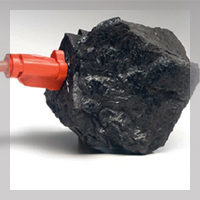The central government’s decision to introduce an ordinance to re-auction cancelled coal blocks is the first step in the right direction, India Ratings & Research (Ind-Ra) has said. The agency also believes that this is only the first step and more issues should be addressed by way of policy actions to revive the much mired power sector.
The proposed e-auction is likely to trigger positive actions from project sponsors, project lenders and project companies so that opportunity is capitalised to the maximum extent. Also, the exploration of these blocks by the private sector could set benchmarks for Coal India Ltd, whose annual growth rate has always remained sluggish in terms of production and efficiency.
Ind-Ra believes that power project companies, which have not tied up power in long-term purchase agreements, will aggressively bid for coal blocks in the proposed e-auction. This is because coal supply to these plants would otherwise depend only upon signing up long-term PPA with state distribution companies. This includes all power companies regardless of the fact they are being investigated for coal block allocation irregularities.
Uncertainties for merchant plants to tie up their power in the longer term still prevail due to decreasing energy deficits and the lackadaisical approach of state utilities in tying up their energy requirements for a longer term. Therefore, merchant power plants could go an additional mile in procuring coal mines that would not only ensure tariff competitiveness with base load plants that have long-term PPAs, but also mitigate the existing uncertainties related to fuel. However, tariff competitiveness depends upon the final auction price and cost of its funding. Companies whose mines have been cancelled are likely to be even more aggressive in their bids to make good on their investments.
The ordinance provides banks an opportunity to revitalise their existing thermal energy portfolio, which is locked up in the imbroglio. Therefore, banks would leave no stones unturned, and hence Ind-Ra expects banks to swiftly respond to this scenario by backing up end-use project sponsors to bid for these coal blocks that could turn a significant portion of their assets to performing ones. Before the ordinance was passed, banks were left with no choice but to either let the loans slip into the non-performing category or reluctantly allow loan rescheduling, expecting a policy redress. This is because a significant amount of banks’ capital has been locked up in end-use plants that neither have long-term PPAs nor fuel supply contracts.
The cancellation of coal blocks by the Supreme Court of India has sprung up concerns related to investments (loans and equity) in deallocated coal mines. However, the ordinance is likely to revive a significant amount of bank loans from slipping into the NPL category. In respect of coal mines which are operational and/or close to commercial operations (74 mines), winning bidders will have to pay a compensation payment to existing allottees. However, Ind-Ra believes that lenders are equipped through their financial covenants to apply compensation payment first towards the recovery of their loans in the order of priority. The agency also considers that compensation payment would at least be equivalent to the investments made by existing allottees in these coal blocks.
We believe that the move to allocate coal blocks directly to state and state-owned generators is a positive step. This could substantially reduce their proposed exposure to the volatile imported coal market and reduce generation costs, especially since India’s maximum energy is still generated by central and state sector projects. The agency also expects the government to consider the distance between end-use plants and captive blocks, factoring in the earlier applications for the rationalisation of mines.
The government’s intention to maintain the spirit of nationalisation is evident from the fact that the commercial exploitation of these mines could only be within the scope of captive purposes, at least for now, although enabling provisions for a third party sale will find a place in future. Ind-Ra believes from the media reports that this will be applicable for all potential bidders, who are being investigated as well as others. At this juncture, this is one of the most feasible decisions since this would keep energy prices at low levels until the power sector evolves and matures further. Once the market matures, tariff is likely to find its equilibrium even with a non-captive sourcing of coal. It will remain to be seen as to how this will fit in the framework of Coal Mines Nationalisation Act.
Government’s Facilitation of Approvals: Ind-Ra is of the view that the government would through a single window obtain/grant clearances and related approvals for the commercial exploration of a mine before it is auctioned or allocated. This is because the poor track record of the erstwhile allottees (due to reasons reportedly beyond their control) in obtaining clearances for the balance 140 mines. The move would help the already delayed projects reach commercial operations quickly. It could also mobilise additional resources to the government due to the mines’ readiness to be commercially explored.
On the whole, we believe that the ordinance provides a positive impetus to the much policy-starved energy sector. The ordinance will also make the sector more attractive for foreign investments.
Source: India Ratings & Research











